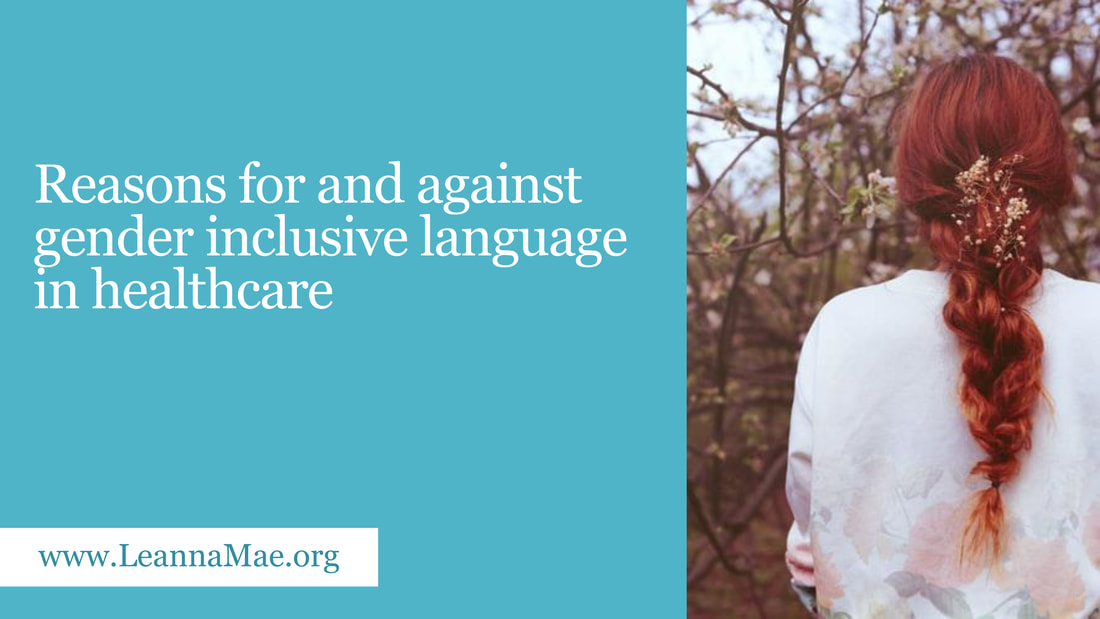|
This blog is part 1 in a 3-part series on gender inclusive language. Language changes over time. Words fall out of use. New words become common. Language has always evolved. This is different. This isn’t simply changing a word. It’s changing identity. It’s changing the way we see gender. To some, it’s inclusion. To others, it’s erasure. For the lay person, they can easily choose their language freely and they choose their social circle. For those in healthcare, you’ll find yourself being faced with taking care of all types of people and trying to find the right words to make everyone feel respected. Do you keep with tradition or do you step back from personal identity to use more broad terms for all people? Let’s look at the reasons people choose to be for or against this change. Reasons for
Reasons against
The above reasons are different perspectives and it’s up to you as the healthcare professional how you approach language in your patient care. You are free to choose traditional language or gender-neutral language. What happens when it’s not your choice anymore? Is it ethical for employers to require gender neutral language knowing that it goes against the religious beliefs of some employees? What about deeply held philosophical beliefs? Respecting cultural beliefs of immigrants? Is it ethical to require or expect people to use this alternative language that violates their deeply held beliefs? What impact will it have on healthcare either way? I stand for freedom. People are free to label themselves as they wish. They should not infringe upon other’s freedom to their chosen speech or their freedom to practice their religion. Is it ethical to require employees to use language that violates their own beliefs? No. Is it ethical to control other people? No. Insisting others use gender inclusive language is no different than insisting others use traditional language. The root is control. The agenda is to erase gender as we know it. What happens when gender changes? Gender roles change. Family structure changes. The family unit changes. The family as a core pillar of society changes. With the waves of change and uncertainty, the pillars crumble. The foundations of faith and family shatter. The fruit of this plant is bitter and destructive. If you are against language that erases gender, stand firm in your faith. Continue to speak the traditional language. If you need some ideas for how to respond when confronted with this matter, click here to read part 2 in this blog series.
0 Comments
Your comment will be posted after it is approved.
Leave a Reply. |
If this website has been a helpful resource to you, consider donating any dollar amount here.
Donations allow more time to write blogs and build this resource that is freely available to all.
Donations allow more time to write blogs and build this resource that is freely available to all.
Leanna Mae
Apostolic Pentecostal Christian
|
international author |
maternal-infant wellness educator
|
birth doula
|
breastfeeding specialist |
Copyright © 2013



